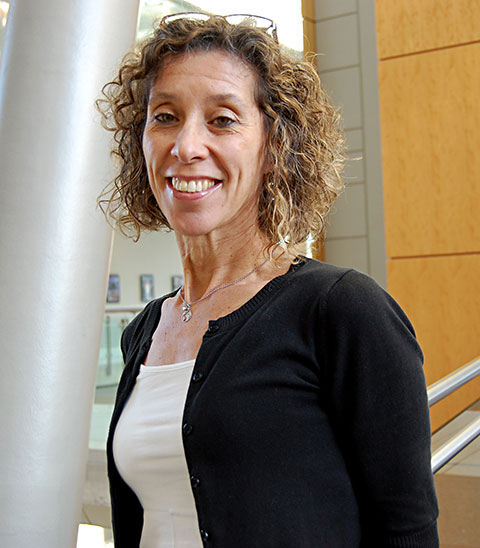Montserrat Puig, PhD, Biologist, Research Reviewer
"In my position as a scientist and a reviewer of drug applications, I’m fortunate to have research and review responsibilities … It enables me to learn about and become proficient in a myriad of subjects that I would not have come across if I had stayed in academia."
Montserrat Puig, PhD, Biologist, Research Reviewer
Q: Why do you think a scientist should consider FDA as a place to work?
Montserrat Puig: FDA offers a unique environment for researchers to apply their knowledge and expertise to understanding problems that directly affect public health. I work in FDA’s Center for Drug Evaluation and Research (CDER), where we conduct applied research relevant to the development of drugs. The research programs give FDA scientists a great deal of flexibility because we address a variety of health challenges that arise and that require timely evaluation and solutions. In this way you’re always learning.
Q: Why do scientists like you stay at FDA?
MP: In my position as a scientist and a reviewer of drug applications, I’m fortunate to have research and review responsibilities. It has given me exposure to a broad spectrum of public health-related regulatory questions that are different from what my research focus is. This type of work is constantly stimulating. It enables me to learn about and become proficient in a myriad of subjects that I would not have come across if I had stayed in academia.
Moreover, I enjoy working in an agency that is collaborative and team-oriented. As one of the review team members for drug submissions, I have had countless opportunities to interact with experts in scientific areas different from mine. FDA provides a unique learning environment that fosters a scientist’s professional growth.
FDA’s organizational infrastructure provides support for scientists to use resources and to participate in developing the next generation of regulatory and scientific tools. I would encourage others to take advantage of these opportunities. I’ve been a member of, and chaired, the Committee for the Advancement of FDA Science, which has enabled me to take part in FDA’s vibrant scientific community at a different level from my daily work. Being involved in decision-making on issues that affect the work of scientists at FDA has been particularly fulfilling.
As a scientist, I value the flexibility that FDA gives me to work with external partners and collaborators. During my career here, I’ve established numerous successful collaborations with academia, the National Institutes of Health, and industry. They are critical to furthering FDA’s understanding of the products we regulate.
Q: How do you use your science degree at FDA?
MP: I earned my undergraduate degree in biology and my PhD degree from the University of Barcelona, Spain. I came to the U.S. for postdoctoral studies. At FDA’s Center for Biologics Evaluation and Research, I developed immunization strategies to combat hepatitis C virus infections. I then moved to FDA’s Center for Drug Evaluation and Research, where I evaluated the potential of short DNA molecules to protect non-human primates against Leishmania cutaneous infections.
My current position as a staff scientist at FDA enables me to continue doing basic science to increase our understanding of immune-mediated hypersensitivity drug reactions, a type of adverse reaction that is life-threatening for some patients taking otherwise-safe medications. My background in microbiology and acquired knowledge in immunology are critical to performing my daily work in the lab as a researcher and in regulatory matters as a reviewer.
Our lab has become the reference for reviewers who have questions on immune-related adverse reactions, and I can offer informed advice on immunological questions from product and clinical reviewers. Immunology is a science that spans many different disciplines; thus, I apply my expertise to find links between the clinical effects observed in patients taking a particular drug and the structure of the molecule as well as the manufacturing process.
Q: How is the science conducted at FDA unique from science conducted at the National Institutes of Health, academia, or industry?
MP: FDA is unique in that--as part of our mission-critical work--we do both basic science that you see conducted at NIH, in academia, or in biotech R&D programs as well as applied regulatory science. FDA applied research is conducted to safeguard public health and includes research programs done by Agency scientists that could not be developed at other institutions that lack access to non-public information linked to the approval process of new drugs and therapies.

